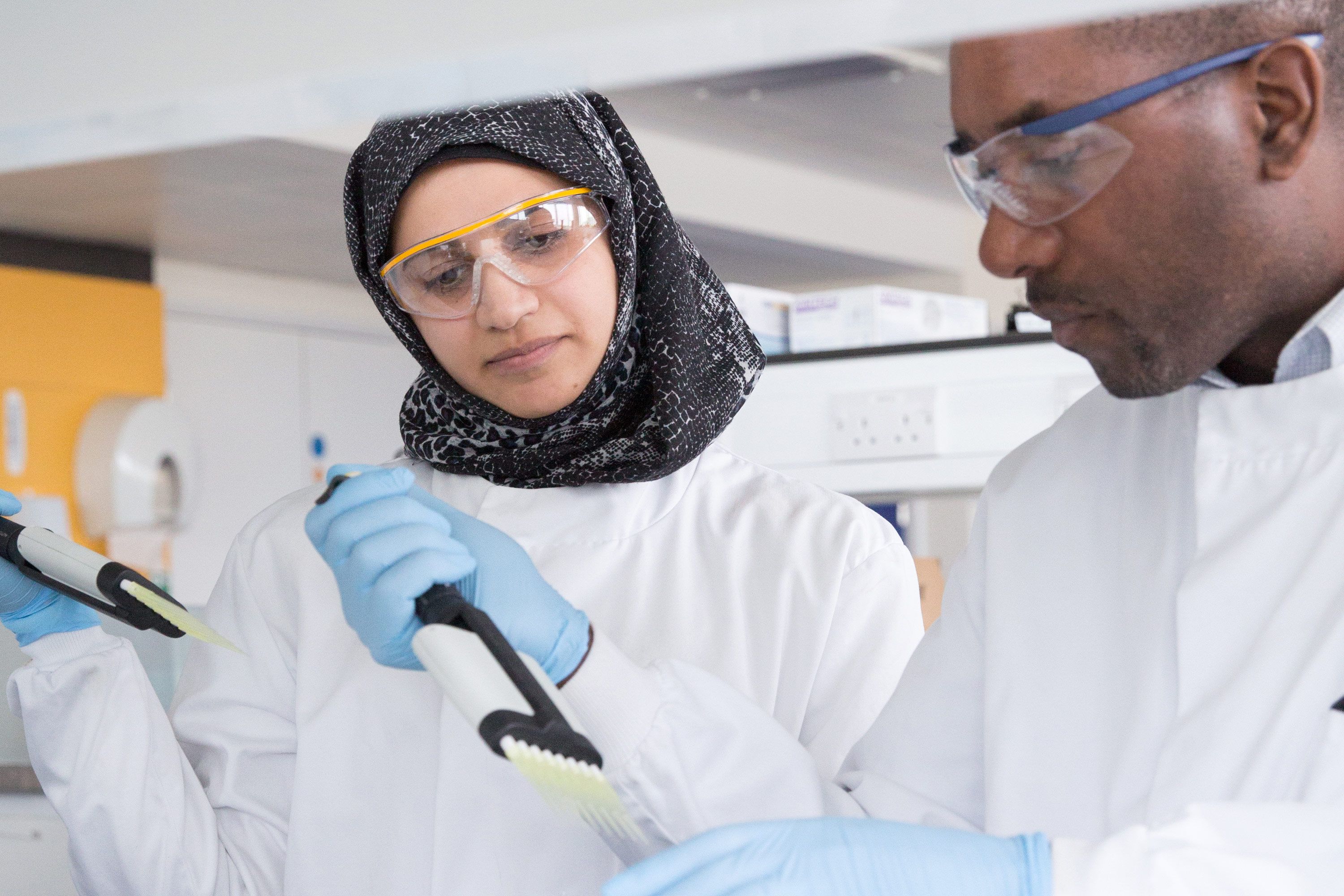--tojpeg_1543313994220_x2.jpg) Sara Rankin, Professor of Leukocyte and Stem Cell Biology in the Faculty of Medicine, has combined her teaching and research with an active pursuit of public engagement activities. This set of skills and experiences coalesced when Professor Rankin helped to set up a new Master’s degree in ‘Genes, Drugs and Stem Cells’. “This course is quite unique in that it’s built around strengths that we have in the department in these three areas,” says Professor Rankin, who teaches alongside Professor Uta Griesenbach and Professor Jane Mitchell.
Sara Rankin, Professor of Leukocyte and Stem Cell Biology in the Faculty of Medicine, has combined her teaching and research with an active pursuit of public engagement activities. This set of skills and experiences coalesced when Professor Rankin helped to set up a new Master’s degree in ‘Genes, Drugs and Stem Cells’. “This course is quite unique in that it’s built around strengths that we have in the department in these three areas,” says Professor Rankin, who teaches alongside Professor Uta Griesenbach and Professor Jane Mitchell.
Students study the basics of each of the topics in the three short core modules that comprise the first term of the course. Then they go on to specialise in one of those areas at an advanced level.
Professor Rankin continues: “In these core modules we have to set assessments but, because each one is only a two and half week introduction, students don’t have very in-depth knowledge at that stage. So, what we did was to try and be quite creative in our assessments across these three modules.”
Professor Rankin and her colleagues have introduced a range of different assessments throughout the course. She explains: “We’re trying to make this interesting, challenging and relevant to the real world. We’re not assuming that all of these people are going into academia.”
Student comment
One student said: “I found communicating some scientific knowledge in lay-terms challenging because we need to change the way we consider problems, and a lot of background knowledge has to be expressed in another way.” Another said: “I like this form of assessment because it is an open task that allows us to search for more information, exercise our skills in communicating science to others, and learn how to work as a team.”
This means, for example, that students will be assessed on oral and poster presentation skills, as well as sitting a traditional exam. Professor Rankin says that using multiple formats like this makes for a more inclusive assessment for students, including international students and those with learning difficulties, such as dyslexia.
“What we emphasis at the beginning of the course is that students shouldn’t be thinking about how this particular assessment tests their knowledge of that particular module. What we’re more interested in is helping students to develop 21st century career skills over the whole of the Master's course.”
Professor Rankin felt very strongly that she wanted to bring her own experience in public engagement into the course: “I’ve done a lot of outreach and public engagement, and I think it’s really important. In terms of stem cells, it has played a key role in the public’s perception, as well as in grant funding and in policy, for example around the use of embryonic cells in research.”
She was surprised to discover that many of the students had no previous experience of this area: “Many are international students and they are completely unaware that science communication exists as a sector and as potential career for them. I talk to them about why I think it’s important and how they could get involved.”
She continues: “One of the things we really struggle with in science teaching is assessing creativity and yet, as a scientist, being creative and innovative is really important. So we make sure there are elements in this course, and in the assessment, where students can display creativity.”

During a special workshop on creativity, students are given a set of custom-made dice. Instead of numbers, one features a selection of different science topics and the other features a choice of different audiences. Groups roll the dice then come up with ideas for how they would, for instance, communicate with families about gene therapy.
“Their task is to come up with an idea for how to communicate and create all the promotional materials, then write a very short report, which is a reflection on why they chose a particular activity. For example, why are you doing a radio advert for the over 50s or why are you doing an activity in Hamley’s toy shop? They come up with beautiful stuff, like an animation, that I have gone on to use in my own public engagement activities.”
Professor Rankin says that her students are already making use of their newly discovered skills in creativity and communications: “Last year’s class really wanted to continue what they had started in class, so I worked with them to deliver a one day science workshop for a group of BME students with the charity Generating Genius.”
Other students have gone on to organise their own outreach events, like ‘pint of science’ events or even secured jobs in public engagement. “We need professional science communicators but we also need scientists in all fields to communicate effectively about their work. I think there’s a validation to these activities when it comes from people like me who are serious scientists,” Professor Rankin adds. “And I think for some students, this has clearly sparked an interest and opened up a whole new world.”
Find out more about inclusive learning and teaching at Imperial.
Sign Up
If you are interested in receiving the Learning and Teaching Newsletter, please email ltstrategy@ic.ac.uk.
You can also view the issue archive online.

